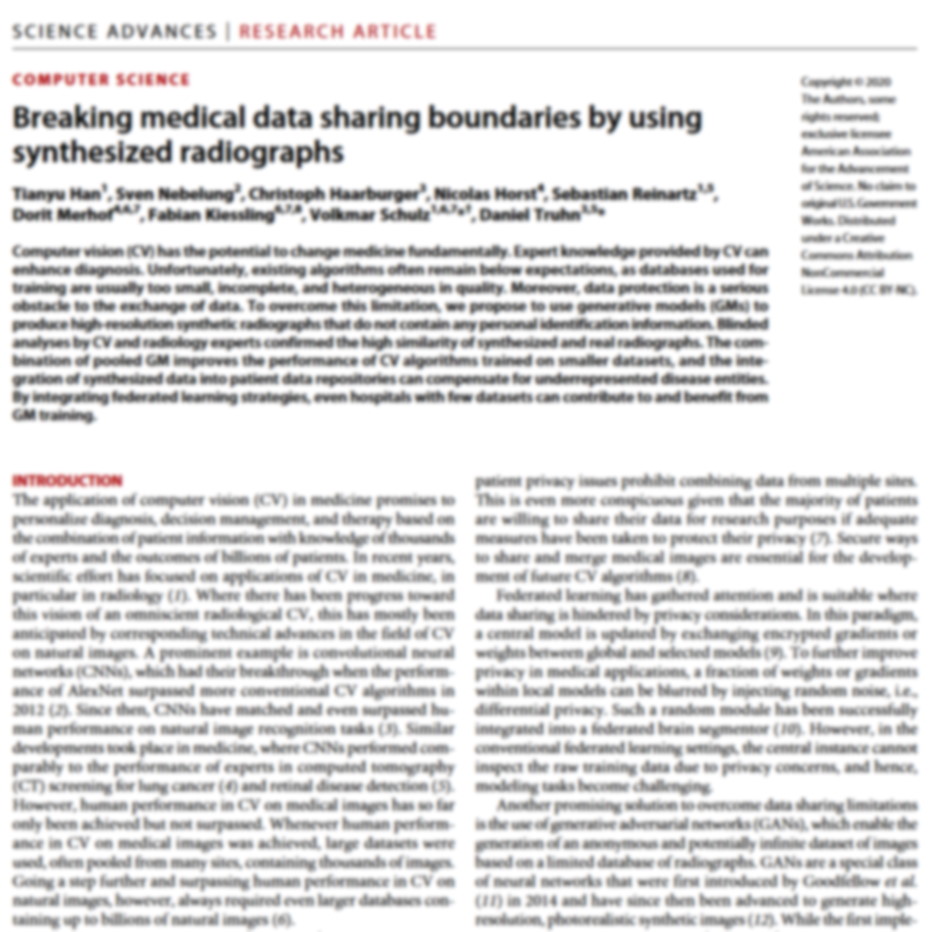Article in Science Advances on AI-based generation of synthetic radiographs
The December issue of Science Advances contains the article Breaking Medical Data Sharing Boundaries by Employing Synthesized Radiographs by Tianyu Han. Three of the co-authors – Dorit Merhof, Fabian Kiessling, and Volkmar Schulz – have been affiliated with Fraunhofer MEVIS since 2018 as part of a strategic cooperation with the Comprehensive Diagnostic Center Aachen (CDCA) at the University Hospital RWTH Aachen, Germany. Tianyu Han is a PhD student within Volkmar Schulz’s research group, who is the corresponding and shared last author of this study.
The paper describes a new method to transform radiological data from many hospitals into synthetic radiological data that does not contain any private or confidential patient information. This approach could be the key to overcoming existing obstacles in the development of AI methods in radiology.
Computer vision (CV) algorithms often remain below expectations, as databases used for training are usually too small, incomplete, and heterogeneous in quality. In addition, data protection is a serious obstacle to data exchange. To overcome these limitations, the authors propose to use generative models (GMs) to produce high-resolution synthetic radiographs that do not contain any personal identification information. Blinded analyses by CV and radiology experts confirmed the high similarity of synthesized and real radiographs. The combination of pooled GM improves the performance of CV algorithms trained on smaller datasets, and the integration of synthesized data into patient data repositories can compensate for underrepresented disease entities. By integrating federated learning strategies, even hospitals with few datasets can contribute to and benefit from GM training.
Science Advances (Impact Factor 2019: 13.116) is the American Association for the Advancement of Science’s (AAAS) open access multidisciplinary journal, publishing impactful research papers and reviews in any area of science, in both disciplinary-specific and broad, interdisciplinary areas. The mission of Science Advances is to provide fair, fast, and expert peer review to authors and a vetted selection of research, freely available to readers.
 Fraunhofer-Institut für Digitale Medizin MEVIS
Fraunhofer-Institut für Digitale Medizin MEVIS